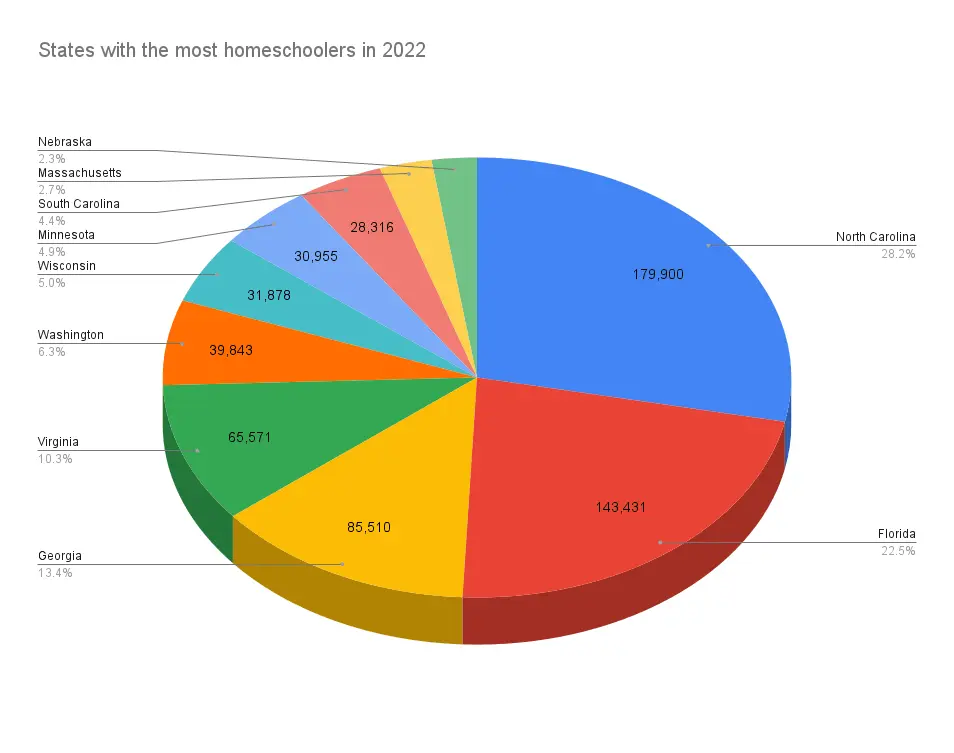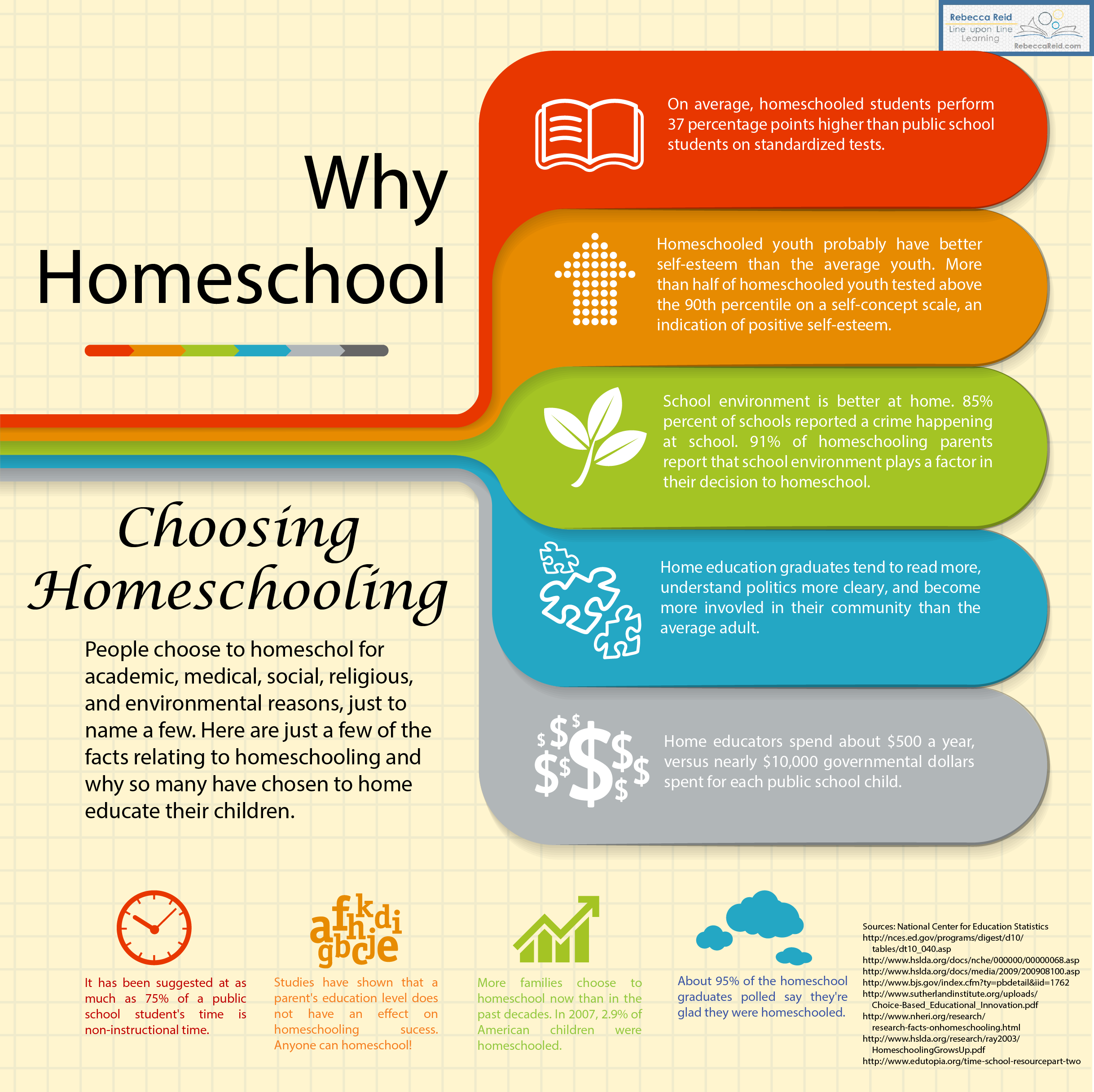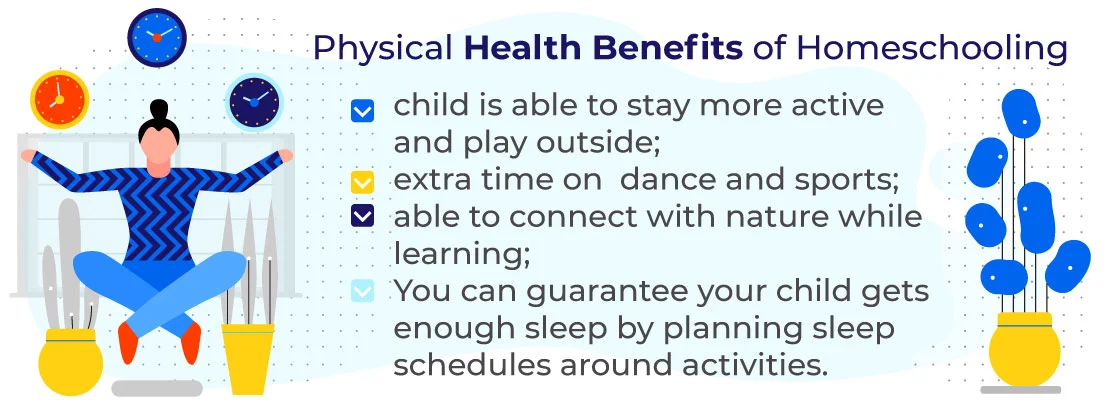Update: This article was last updated on 3rd March 2025 to reflect the accuracy and up-to-date information on the page.
The homeschooling phenomenon, where parents choose to teach their children at home alone, became popular during the 1970s and continues to thrive today. Most families think there are 10 excellent reasons to homeschool your child, such as individualized learning, flexibility, and more family closeness. Others have reasons for homeschooling like fear of school safety or discontent with conventional education.
For example, based on the National Home Education Research Institute (NHERI) estimates, in the 2021–2022 school year, 6% of children of school age were homeschooled. That is about 3.1 million children in kindergarten through high school. The argument is that why homeschooling is a better option is due to its customization to a child’s learning style, which is a valid reason to be homeschooled. Meanwhile, others are convinced that 10 reasons why public school is superior to homeschooling statistics emphasize how the socialization and extracurricular activities in conventional schools can benefit students.
Despite arguments on why homeschool is superior or why homeschooling is better, the movement remains on the rise. Critics, however, mention 10 worst reasons to homeschool your child, including lack of parental knowledge, social isolation, or standardized test difficulties. The debate on why homeschooling is superior to traditional schooling continues unabated, with both sides presenting strong arguments.

What’s Homeschooling?
Parent-led instruction from the comfort of one‘s own home is referred to as homeschooling. It simply refers to parents teaching their children educationally at home instead of putting them in a conventional public or private school. 10 great reasons to homeschool your child are flexibility, customized learning, and safety. Yet others might dispute 10 reasons why public school is superior to homeschooling statistics. Homeschooling reasons differ, but most people think why homeschooling is good because of personalized curriculums and individualized attention.
Good reasons to be homeschooled tend to involve improved academic performance and increased family ties. People argue about why homeschooling is superior to traditional education, but others wonder why homeschool is superior in some situations. Regardless of the disagreements, why homeschooling is good is still an argument. That being said, there are 10 poor reasons to homeschool your child that parents need to think about before deciding. All 50 states in the US allow homeschooling, but they all have their own laws that families need to adhere to.

Let’s view some stats!!
i) Homeschoolers often achieve test scores that are 15–30% higher than those of pupils in public schools, according to the NHERI.
ii) Homeschoolers typically achieve scores between 85% and 87%, compared to public school students who typically achieve scores of approximately 50%.
iii) Around 9 million US pupils were homeschooled at least once by February 2020!
iv) According to a recent 2020 Education Choices research, 70% of American parents are now more open to the idea of homeschooling.
v) In the United States, there were roughly 3.1 million homeschoolers in grades K–12 in 2021–2022.
How does one homeschool?
Each state in the USA has legalized homeschooling in its own ways. The below can be an overview of a few of the most prevalent attributes among the numerous states:
- Establishing the needed programs and registrations for homeschooling; Registration of children if in a particular school. It is one of the good reasons for being homeschooled since it enables the parents to take charge of their child’s learning.
- Selecting a curriculum and homeschool program that suits the child and the family. Why homeschool? Because it allows flexibility in the choice of a customized curriculum.
- Ensuring that all the state’s required subjects are taught in the curriculum. Knowing why homeschooling is superior means that all the learning requirements are satisfied while making it flexible to fit the child.
- Participating in a support group and sharing of information through contact with organizations and associations per state. Participation in such groups may assist parents in realizing 10 good reasons to homeschool your child and at the same time comparing perspectives with individuals who support 10 reasons why public school is better than homeschooling statistics.
Homeschooling offers parents the control over their child’s education but it’s equally necessary to assess 10 bad reasons to homeschool your child in order to make well-informed decisions. Why is homeschooling good? Homeschooling accommodates flexibility and tailored learning experiences, which make it a sought-after option by many families.
Homeschooling Benefits
Below are some of the most common benefits of homeschooling if you’re trying to determine whether it’s better to homeschool or attend a public school.
a) Homeschooling provides flexibility, which is one of the 10 good reasons to homeschool your child.
b) You have control over how fast your child learns, which is one of the main reasons for homeschooling.
c) One can learn outside of school through homeschooling, and that is why homeschool is ideal for some families.
d) Personalized instruction is an excellent reason to be homeschooled.
Apart from this, a 2010 study comparing the performance of homeschooled and public schooled children showed that the ACT scores and grade point average scores of homeschoolers were higher than public schooled children. According to NHERI, 66.7% of homeschooled students earn college degrees, whereas 57.5% of public school students do, emphasizing why homeschooling is superior to academic achievement. Some would counter by using 10 reasons why public school is superior to homeschooling statistics or refer to 10 worst reasons to homeschool your child, emphasizing the importance of weighing both alternatives with caution.

Why do parents choose homeschooling?
While we discuss homeschooling, let us determine the reason why homeschool is being favored among many families. These reasons for homeschooling are enumerated by the National Center for Education Statistics:
The top concern is school problems like safety, drugs, or bad peer pressure.
Parents have a desire to give moral lessons, so they opt to homeschool.
10 reasons to home school your child are that homeschooling is superior for families who prioritize family life together.
Another reason that homeschooling is good is dissatisfaction with the academic teaching at other schools.
One of the good reasons to be home schooled is to give religious instruction.
There are parents who are against traditional learning systems and prefer an alternative method to the education of their children.
Parents of children with special needs discover homeschooling as a superior choice.
It is also suitable for young people afflicted with physical or mental illness.
If a child is only briefly ill, the homeschooling program helps them stay on course with academic progress.
10 reasons public school is superior to homeschooling statistics tend to argue the efficacy of each program, but why homeschool is superior varies according to family needs.
10 worst reasons why you should home school your child are scenarios under which parents do not adequately prepare for the undertaking involved.
Homeschooling has numerous benefits, save that the kids do not socialize with peers and might miss social skills. But considering the outcome, it does seem a viable option. Should you be homeschooling your kid, then you can be served by Moonpreneur’s programs for STEM education.
Moonpreneur strives to revolutionize traditional education, equipping the future generation with immersive learning opportunities. Our Innovator Program arms students with essential skills in AI/ML, Robotics, Coding, Game Development, and App Development, inspiring entrepreneurship through experiential learning. This effort is designed to build the workers of the future by incorporating advanced technologies and functional skills into school curriculums.
Enroll in a 60-minute complimentary workshop today!























My 8 year old son has become distant from his siblings and to us. I tried to find the reason but couldn’t, One day he confessed about getting bullied and begged not to ask him to go back to school. So I decided to homeschool him resulting the stronger family bonds we’ve developed. It’s truly priceless and a rewarding journey.
Homeschooling may isolate children from valuable social interactions and diversity. It can limit their exposure to different perspectives and hinder their ability to navigate real-world challenges. #NotForEveryone
1. How do I ensure that my homeschooled child is getting a good education?
First, make sure that you have a well-rounded curriculum. This should include all of the core subjects, such as math, science, English, and social studies. You may also want to include other subjects, such as foreign languages, art, and music.
Second, create a daily or weekly lesson plan.
Finally, make sure that your child has access to a variety of learning resources.
1. Give some Ideas to socialize my homeschooled children.
Here are a few ideas:
Join a homeschooling co-op or other homeschooling group.Enroll your child in extracurricular activities, such as sports teams, music lessons, or dance classes.Volunteer at a local soup kitchen, animal shelter, or other non-profit organization